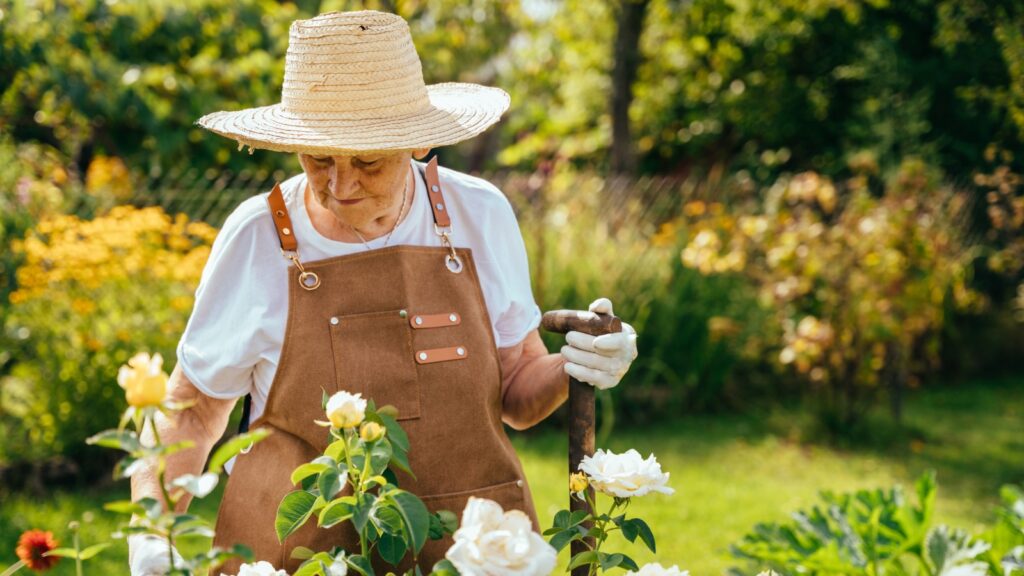Reaching retirement and maintaining financial stability is a significant achievement. For retirees over 70, certain signs indicate they are doing well financially. Here are 21 key signs of good financial health for retirees:
Consistent Income Streams

Consistent income streams, such as pensions, Social Security benefits, and investment returns, are crucial for financial stability. These sources provide a reliable flow of money to cover daily expenses and unexpected costs.
Debt Free Living

In general, being debt-free is a strong indicator of financial well-being. Retirees who have paid off their mortgages, credit card balances, and other loans can enjoy their retirement without the burden of debt payments.
Healthy Savings Accounts

A healthy savings account ensures that retirees can handle emergencies and large expenses without financial strain. A robust emergency fund is a sign of careful financial planning and security and will allow for financial comfort when life throws us curveballs.
Investment Portfolio

A diverse investment portfolio that generates steady returns is another sign of financial health. Retirees who have successfully managed their investments can rely on these funds to support their lifestyle and cover additional expenses such as weekends away and supporting their grandchildren through college.
Home Ownership

Owning a home outright, without a mortgage, is a significant financial milestone for most people. Homeownership provides stability and can be a valuable asset that can be leveraged. As reported in FT Adviser, 78% of retirees own their own homes, but this figure is set to fall in the coming years, which means more people will have the stress of paying rent during their retirement.
Healthcare Coverage

Comprehensive healthcare coverage, including Medicare and supplemental insurance, ensures that retirees can access necessary medical care without worrying about high costs. Good healthcare coverage is vital for maintaining physical and financial health, which means retirees don’t have to skip appointments, so they can save money.
Travel and Leisure Activities

According to Travel Agent Central, half of traveling Americans in 2022 were seniors, but not all retirees can take a regular vacation. Traveling and participating in leisure activities indicates that retirees have discretionary income. This ability to enjoy life’s pleasures without financial worry is a positive sign of financial well-being.
Philanthropy and Donations

Financially secure retirees often engage in philanthropy and charitable donations, whether paying for family members to take vacations or regularly supporting their local soup kitchen. Giving back to the community and supporting causes they care about is a hallmark of financial stability.
Estate Planning

Having a well-structured estate plan, including wills, trusts, and other legal documents, shows that retirees are prepared for the future. This planning ensures that their assets are distributed according to their wishes and can help avoid potential family conflicts.
Low Monthly Expenses

Managing monthly expenses effectively is crucial for financial health. Retirees who have minimized their living costs through budgeting and smart financial decisions can comfortably maintain their standard of living.
Engaging in Hobbies

A study published in The National Library of Medicine found that seniors who engaged in regular hobbies had improved mental health compared to those who didn’t have a hobby. The ability to pursue hobbies and interests, such as gardening, golfing, or crafting, can indicate financial freedom, as those on lower incomes may not be able to afford expensive accessories.
Access to Financial Advice

Retirees with access to professional financial advice can make informed decisions about their money. Regular consultations with a financial advisor can help manage investments, plan for taxes, and ensure overall financial health.
Staying Active and Social

Maintaining an active and social lifestyle often goes hand in hand with financial health. Participating in community activities, social clubs, and fitness programs can enhance quality of life and indicate financial stability.
Maintaining Home and Property

Maintaining their home and property, including repairs, renovations, and landscaping, signifies that a retiree has the luxury of financial security. A well-kept home reflects the ability to afford necessary upkeep without the financial strain of having to rely solely on Social Security.
Continuing Education

Pursuing education or learning new skills in retirement shows a commitment to both personal growth and financial stability. The ability to afford classes, workshops, and courses indicates that a retiree has disposable income that allows them to stay mentally active.
Emergency Preparation

Being prepared for emergencies, with access to funds and resources for unexpected events, is a key indicator of financial health. Retirees who can handle unforeseen expenses without financial distress are well-prepared and have likely been savvy with their money while working.
Strong Social Network

Retirees who can afford to socialize and participate in group activities demonstrate good social well-being, usually boosted by financial security. Engaging in social activities often requires a certain level of disposable income, indicating that a retiree has the financial resources to participate in community events and social clubs and travel to visit friends and family.
Flexibility in Spending

Financial flexibility, such as adjusting spending, is crucial for retirees. There will be times when extra cash is needed, whether it be to adapt a bathroom during old age or simply to pay more expensive grocery bills.
Regular Financial Reviews

Regular financial reviews and adjustments to their financial plan show that retirees are proactive about their money. This habit helps ensure long-term financial health and security, something that retirees on a lower income may not be used to.
Enjoying Retirement

Ultimately, enjoying retirement without financial worry is the clearest sign of financial well-being. Retirees who can live comfortably, pursue their interests, and support their loved ones demonstrate financial success.
Managing Taxes Efficiently

Efficient tax management, including understanding and utilizing tax benefits and deductions, is crucial to financial health. Retirees who manage their taxes well can maximize their income and reduce financial burdens.
19 Grim Realities of Dating After 50 That Are Often Overlooked

19 Grim Realities of Dating After 50 That Are Often Overlooked
26 Things That Will Be Extinct Because Millennials Refuse to Buy Them

26 Things That Will Be Extinct Because Millennials Refuse to Buy Them
24 Outdated Slang Terms You Absolutely Shouldn’t Be Using Anymore

24 Outdated Slang Terms You Absolutely Shouldn’t Be Using Anymore
25 Hardest Parts About Getting Older That No One Ever Talks About

25 Hardest Parts About Getting Older That No One Ever Talks About






